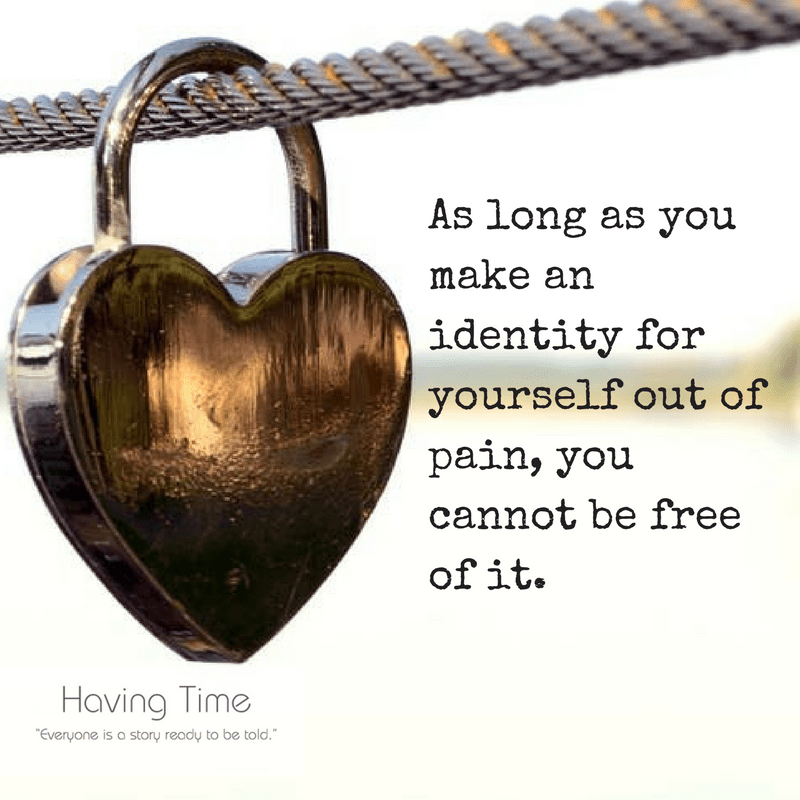
“As long as you make an identity for yourself out of pain, you cannot be free of it.” – Eckhart Tolle
In my student days I worked on a chronic pain group program. If there was going to be a tense group session, it was when we presented the module on acceptance. Acceptance is continuously demonstrated to be associated with better outcomes for people with chronic pain.
Some patients in the program could become quite agitated and even verbally aggressive during this session. These patients objected to the word acceptance. They interpreted acceptance to mean that they could no longer seek treatment to reduce pain or that they had to like their pain. They heard “give up” or “this is your life forever”. Some patients believed living with chronic pain was unfair and objected to the idea of acceptance for this reason.
My own journey with chronic pain began about 6 years ago. I don’t like or want the pain that I experience but I have learned that worry, resentment and struggle make pain worse. Instead, I’ve learned to use acceptance to help manage my pain.
What is acceptance of chronic pain and why would anyone want it?

Chronic pain often evokes struggle and changes in the way people live. It is easy to get caught up hating pain or battling your body to get rid of pain. It is normal and natural to respond to acute pain signals from our bodies by reducing activity and resting. The trouble is that with chronic pain, the pain occurs beyond the acute stage and is thought to be result of faulty signalling between the brain and body. If chronic pain continues to be responded to as though it is acute pain, it can lead to severe limitations to normal living through avoidance behaviours, excessive diagnosis and solution seeking and in some cases anxiety and depression.
“Over recent decades, a reasonable amount of data has been generated which suggests that greater acceptance of chronic pain is associated with fewer pain-related difficulties, such as distress and disability, and better overall quality of life”
Acceptance offers a way to have a different relationship with chronic pain. Acceptance means giving up the struggle with uncomfortable sensations. It means I accept that in this moment, this is what I am experiencing. I don’t have to like it or want it, but I accept that pain is present. It means not adding resistance, anxiety and other painful feelings on top of your problem. It means saying “I don’t have to fight with my feelings or body sensations”. It does not mean you can’t do things that will ease your pain like use medications or other treatments.
Acceptance has allowed me to continue to work when I am in pain.
Acceptance acknowledges the presence of pain and encourages strategies to get to know the pain and make peace with it. Instead of “I don’t want it” acceptance encourages an almost friendly coexistence with pain. This is cultivated by mindfulness and letting go. By this, I mean not clinging to the previous pain-free existence.
By accepting pain’s presence and reducing our struggle against it, chronic pain sufferers experience less psychological distress. When not distressed by pain, we can engage more fully in long-term strategies to help live life with the presence of pain. By lessening uncomfortable emotions such as anger, resentment, and anxiety, there is more room for living life.
Acceptance often results in:
- Being more able to engage in maintenance and prevention strategies which reduce pain flare-ups.
- A cessation in the endless cycle of solution seeking and specialist visits which can result in difficulties moving forward in life and enhance worry and frustration.
- Being able to engage in more activity despite the presence of pain
- Being able to participate in work or meaningful activity even though pain is present rather than interpreting pain meaning “I can’t work/ do an activity at all because I’m in pain”.
- Allows the appropriate use medication when needed to relieve or manage pain without excessive conflict.
- Less depression and anxiety
For me, acceptance has meant a greater engagement with maintenance and prevention strategies such as mindfulness, mindful yoga and general physiotherapy strategies which help the muscles associated with my pain. I have stopped pretending that I don’t need to or shouldn’t have to do regular maintenance to prevent pain flare-ups. Instead, I live alongside my pain in an honest and realistic way.
When my pain initially flared, I feared I would have to give up my career to get better. I feared the pain when I felt it in the work setting. Acceptance has allowed me to continue to work when I am in pain. I no longer fear my pain and use mindfulness and acceptance strategies to ensure pain doesn’t co-occur with an overlay of anxiety.
If you or someone you love has chronic pain consider utilizing acceptance-based strategies. Reducing the struggle with and having a more peaceful relationship with pain means better outcomes.


